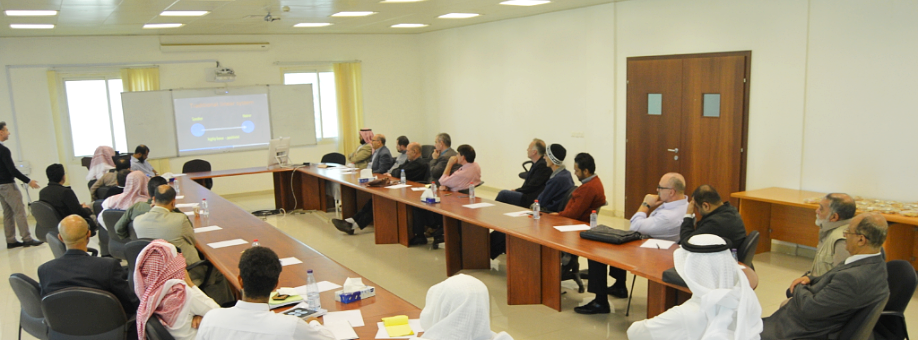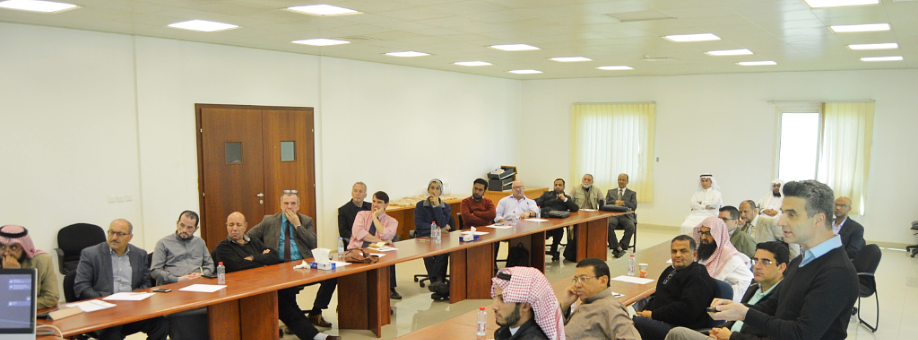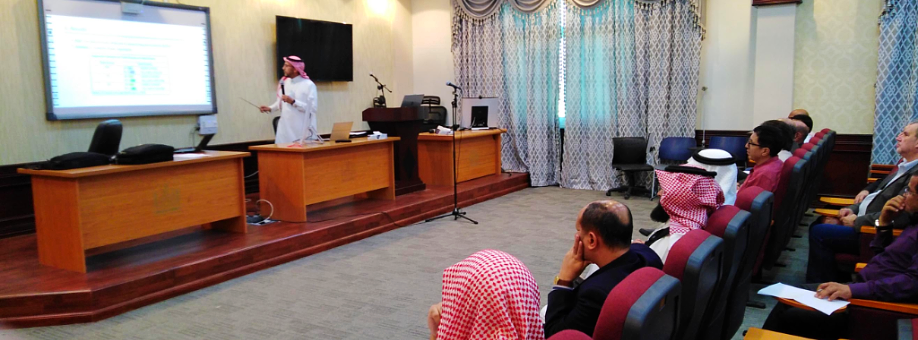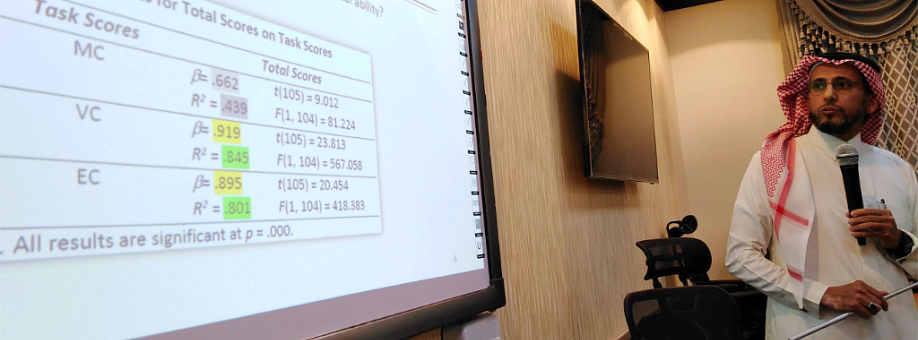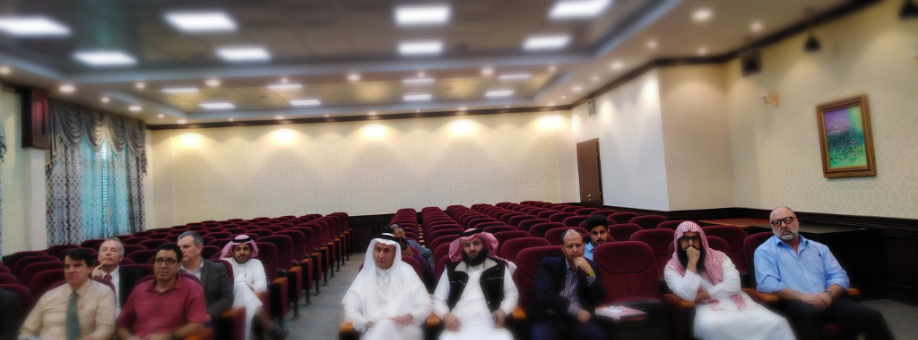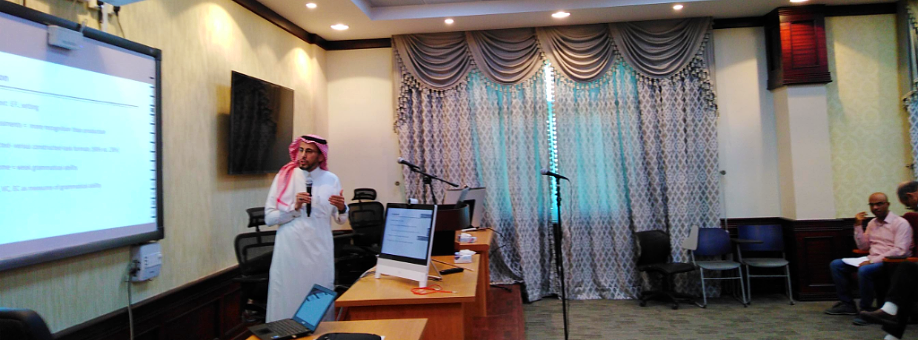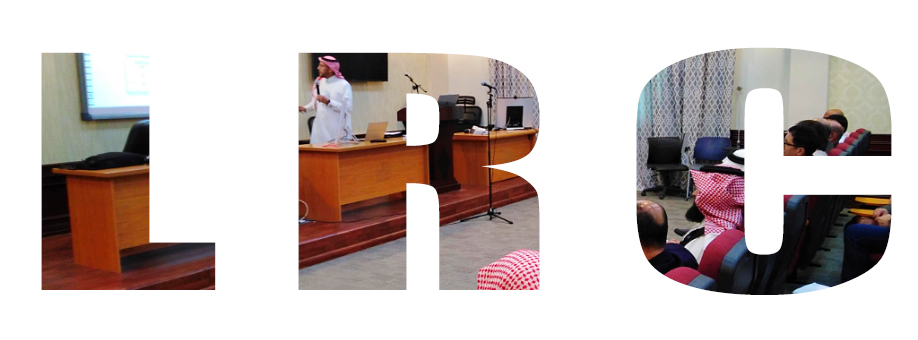Translation and Culture
Saja Al Ahmari and Jawaher Al Enzi, two MA students, delivered a presentation titled Translation and Culture at the seminar organized by the Language Research Center of King Khalid University held on November 28, 2018. The seminar was held on the King Abdullah Road campus. In their presentation, they focused on the cultural awareness required for proper translation. They introduced some such specialized terms relevant to the translation theory as ‘dynamic equivalence’, etc.
They showed some strategies for the knotty problem of finding equivalence for culture-specific terms. Such strategies included, but were not limited to, naturalization, neutralization, and compensation. Naturalization, they said, is a method of translating target cultural concepts by encoding them in their original target language forms. Compensation, on the other hand, they added, is a standard lexical transfer in which the meaning of the source language text is somehow lost in the process of translation. Compensation often results in ‘over-translation’ as opposed to ‘under translation’.
They tried to focus on the close relation between successful translation and understanding the culture of both the source language and the target language. They introduced some interesting examples from different cultures, and how ‘literalism’ does not work out the culture-related problems. One example was taken from German which uses a phrase meaning literally ‘to have tomatoes on one’s eyes’. This is rendered into Arabic as على عينيه غشاوة, obliterating any sense related to literal ‘tomatoes’. More interestingly, they drew the audience’s attention to the fact that some target texts excelled their source counterparts in quality. One example is Fitzgerald’s translation of Omar Al Khayyam’s Persian quadruplets into English in 1859. Despite the desperate attempt by other successors like Robert Graves and Omar Ali Shah in 1967, they failed to produce a translation that would replace Fitzgerald’s.
The seminar was an overall success.
Date: 11-29-18
Source: Mohammad Adil Siddique

